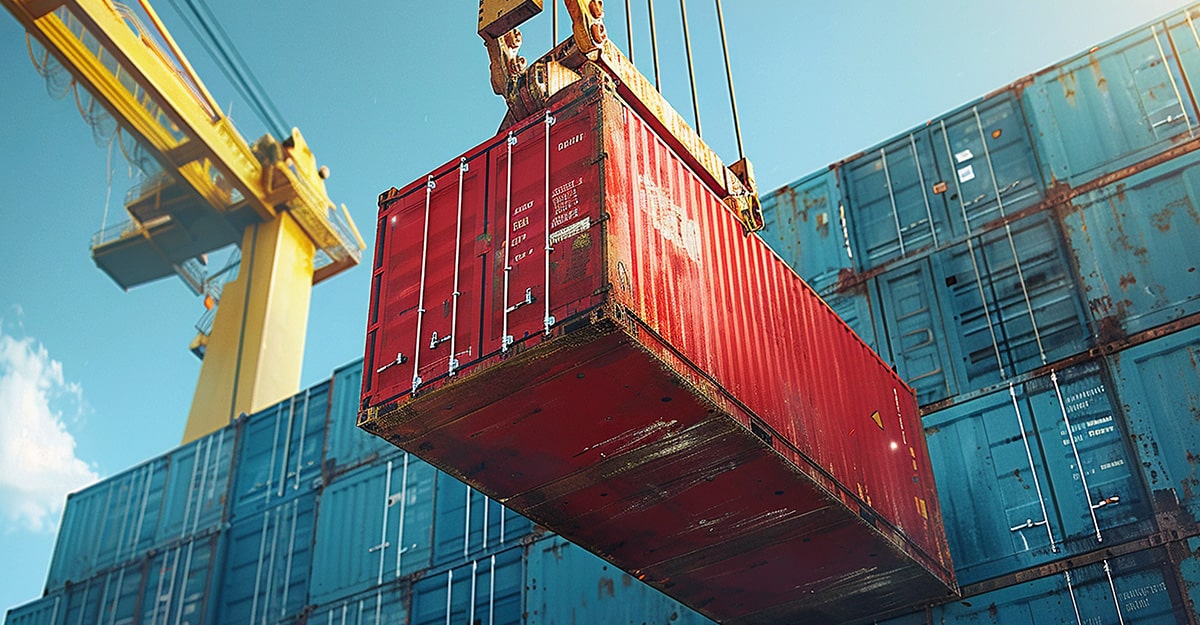In the global economy, trade between countries is a common practice that drives growth and expands opportunities. However, with the increase in international trade, there has been a rise in certain unfair practices, one of the most significant being dumping. When products are sold at an unfairly low price in a foreign market, this practice can harm local businesses. To combat this, many countries implement measures like the anti-dumping duty.
This article will take you through everything you need to know about anti-dumping duties, how they work, their impact on the economy, and some notable examples from around the world. Let’s dive in.
What Is Anti-Dumping Duty?
Anti-dumping duty is a tariff or tax imposed by a domestic government on imported goods that are being sold below the fair market value in the domestic market. When a foreign company exports a product at a price lower than what it charges in its home country, this is known as dumping. The goal of anti-dumping duties is to protect local industries and businesses from this unfair competition, which could potentially harm the domestic market.
Dumping is considered harmful because it can lead to a situation where local businesses cannot compete with the lower-priced imported goods. This could result in local businesses losing revenue, leading to job losses, business closures, and a weakened economy.
Why Do Governments Impose Anti-Dumping Duties?
Governments impose anti-dumping duties to safeguard their local industries and prevent foreign companies from exploiting the domestic market. The main goal is to protect domestic businesses from unfair pricing practices by foreign companies that could lead to:
- Loss of Market Share: Local companies might lose customers to foreign competitors who sell goods at artificially low prices.
- Job Losses: The influx of cheap foreign goods could hurt local industries, potentially resulting in job cuts in sectors such as manufacturing.
- Economic Damage: If local businesses are not able to compete, the overall economy could suffer, as there may be a loss of production capacity, and the economy becomes dependent on imports.
While the intention is to protect jobs and industries, it is important to note that anti-dumping duties can also have some unintended consequences, such as higher prices for consumers. When the cost of imported goods increases due to the anti-dumping duty, consumers may end up paying more for products that were once cheaper.
How Is Anti-Dumping Duty Calculated?
The amount of anti-dumping duty imposed is generally calculated based on the difference between the normal price of the product in the exporting country and the market value of similar goods in the importing country. Essentially, the duty is meant to bring the price of the imported product closer to the fair market value.
For instance, if a foreign company is selling a product at a significantly lower price than it would in its domestic market, the government may impose an anti-dumping duty to equalize the price difference. In many cases, this duty can be as high as 550% of the invoice value of the goods.
Different Methods of Calculating Anti-Dumping Duty
There are several ways the duty can be calculated:
- Normal Price Method: The anti-dumping duty is calculated based on the normal price of the product in the exporting country.
- Comparable Market Price Method: If there is no clear normal price, the price charged in another country may be used to determine the fair market value.
- Cost-Based Method: Another method involves calculating the duty based on the total production costs, including expenses, profit margins, and other factors involved in the manufacturing process.
These methods help determine the extent to which goods have been dumped in the domestic market and ensure that the import duties are applied fairly and consistently.
The Role of the World Trade Organization (WTO) in Anti-Dumping Measures
The World Trade Organization (WTO) plays a significant role in the regulation of anti-dumping measures. The WTO establishes rules and guidelines for international trade and ensures that governments are acting within the boundaries of fair trade practices.
While the WTO does not directly regulate dumping activities by companies, it sets the rules for how governments can respond to it. The WTO’s Anti-Dumping Agreement allows governments to impose anti-dumping duties only when it is clear that the dumping has caused or threatens to cause material injury to the domestic industry.
For instance, the WTO permits anti-dumping duties when:
- There is evidence that the dumped products are causing harm to the local industry (such as job losses or price erosion).
- The dumping has created a threat to the development or survival of the domestic industry.
However, the WTO’s free-market principles dictate that such actions must be justified, and governments must show sufficient evidence of injury before implementing anti-dumping measures. These rules are in place to ensure that governments do not unfairly restrict trade or impose tariffs for political or non-economic reasons.
Example of Anti-Dumping Duties in Action
One of the most notable examples of anti-dumping duties comes from the steel industry. In 2015, several large American steel producers, including U.S. Steel Corp., Nucor Corp., and others, filed a complaint with the U.S. Department of Commerce and the International Trade Commission (ITC) regarding the dumping of steel by Chinese companies in the U.S. market.
The U.S. companies argued that the Chinese steel was being sold at prices that were unfairly low and that this was causing significant harm to the U.S. steel industry. After conducting an investigation, the ITC found that Chinese companies were indeed dumping steel, and the U.S. government imposed an anti-dumping duty of up to 522% on specific steel imports from China.
This case highlights the importance of anti-dumping duties in protecting local industries from unfair competition, especially when foreign companies can sell goods at prices that domestic producers cannot match.
The Impact of Anti-Dumping Duties on Consumers
While anti-dumping duties are meant to protect domestic industries, they can have a downside for consumers. When duties are imposed on imported goods, the price of those goods generally increases.
For example, if a consumer was previously purchasing a product at a lower price due to dumping practices, the price will rise once the anti-dumping duty is applied. This can lead to higher costs for consumers in the domestic market, reducing their purchasing power.
Moreover, in some industries, the reduced availability of cheap foreign products due to anti-dumping duties could result in fewer choices for consumers. Therefore, while anti-dumping duties protect local industries, they may also limit options for consumers and raise the cost of living.
Criticisms and Concerns about Anti-Dumping Measures
There are several concerns and criticisms about the use of anti-dumping duties, including:
- Trade Barriers: Some critics argue that anti-dumping duties can create unnecessary trade barriers and hinder the flow of goods between countries, which could stifle global economic growth.
- Protectionism: Anti-dumping measures are often seen as a form of protectionism, where countries use tariffs to shield their local industries from foreign competition, even when such competition may not be harmful in the long term.
- Impact on Global Trade: Excessive use of anti-dumping duties can strain trade relations between countries, leading to trade wars and retaliatory measures. This can have a negative impact on global trade, as countries may retaliate by imposing their own tariffs on exports from countries that have used anti-dumping measures.
- Consumer Costs: As previously mentioned, consumers may face higher prices for goods due to anti-dumping duties, which can make products more expensive and reduce their purchasing options.
Conclusion
Anti-dumping duties are an essential tool used by governments to protect their domestic industries from unfair competition caused by foreign companies engaging in dumping. While the primary goal is to safeguard jobs, industries, and the economy, these duties can also lead to higher prices for consumers and create trade tensions between countries.
For businesses, particularly those in industries vulnerable to dumping, anti-dumping duties provide an important safeguard. However, it’s essential for governments to carefully weigh the benefits of these duties against the potential negative consequences, including higher costs for consumers and potential trade conflicts.
As global trade continues to grow, the role of anti-dumping duties in maintaining fair competition will remain a critical issue for policymakers and businesses alike. By understanding how these duties work, you can better navigate the complexities of international trade and the impact these measures can have on both the economy and consumers.
FAQs
1. What is the difference between anti-dumping duties and countervailing duties?
Anti-dumping duties are imposed on imports sold below fair market value, while countervailing duties are applied to imports benefiting from unfair government subsidies in the exporting country. Both aim to protect local industries.
2. Can anti-dumping duties be challenged in court?
Yes, companies or countries can challenge anti-dumping duties in national or international courts, such as the WTO, if they believe the measures are unfair or improperly applied.
3. How long do anti-dumping duties last?
Anti-dumping duties can last for up to five years. However, they may be reviewed and extended if it is determined that the dumping continues to cause harm to the domestic industry.
4. Do all countries impose anti-dumping duties?
No, not all countries impose anti-dumping duties. Some countries rely on free-market principles and trade agreements to regulate imports, while others use these duties to protect their local industries from unfair competition.
5. How are anti-dumping investigations initiated?
Anti-dumping investigations are typically initiated by a domestic industry or government agency, such as the U.S. International Trade Commission (ITC), when a complaint is filed regarding suspected dumping practices affecting the local market.

I’m Tammy Waller, a supply chain and logistics specialist with over 10 years of expertise. I’ve been an author and SFL employee for over 10 years.
As an author, I’ve been able to teach others. I love guiding users through supply chain and logistics operations.
I have substantial experience managing logistics operations, supply chain management, transportation, inventory management, and warehousing in shipping-moving and logistic services. I’ve worked on many worldwide logistics and supply chain projects, honing my abilities in negotiating rates, scheduling shipments, and managing vendors.



